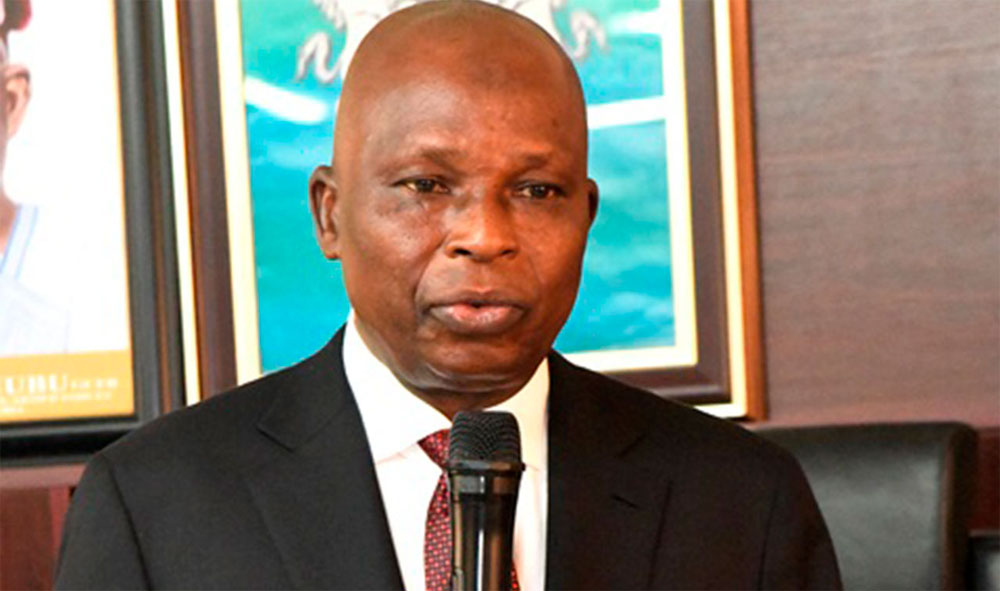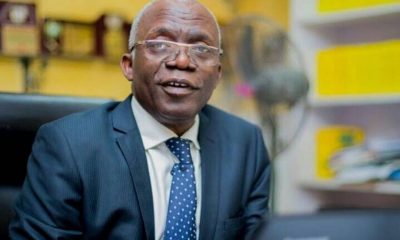“Now that the National Assembly is making a law to create additional states for the people of Southeast, it is reasonable, fair and timely to create additional local governments for Lagos State.”
News
Labour tackles FG over fuel price increase, demands immediate reversal

The Nigeria Labour Congress (NLC) has condemned the latest hike in the pump price of fuel by the Federal Government and demanded an immediate reversal.
This is coming about three days after the announcement by the Petroleum Products Marketing Company Limited of an increase in the ex-depot price of petrol from N147.67 per litre to N155.17 per litre and directed filling stations to sell the product between N168 and N170 per litre.
But the Nigeria Labour Congress said the action was a breach of the agreement it recently reached with the Federal Government.
President of NLC, Ayuba Wabba, said it also cast in a bad light “our utmost good faith with regard to government’s explanations that it lacks funds to continue bankrolling the so-called subsidy payments” as such would sooner than later cripple the entire economy, throw the country into severe economic crisis, and cause loss of jobs in millions.
He expressed this position in a statement on Monday in Abuja to condemn the increase, alleging that there was no doubt that there was great disquiet in the land over the extraordinary level of inflation.
It said the Federal Government did this despite an agreement that it would take immediate steps to revamp the nation’s ailing refineries.
It said, “The recent increase in the pump price of premium motor spirit (PMS) has only exacerbated the current level of pain and anguish in the country.
“The recent increase in the pump price of the PMS is clearly against the spirit and content of what organised labour agreed with the government at the last negotiations over the last fuel price increase.
“While we await the full recovery of our refineries as contained in our agreement with the government, Nigerians cannot be made to bleed endlessly for the failures of successive governments to properly manage our refineries, ensure value for money for the numerous turn around maintenance (TAM) which were poorly and barely executed and the horrifying lack of interest in prosecuting public officials and private business people who have profited from the rot in our petroleum sector and the collective misery they have imposed on the general population.”
The NLC also said there was a limit to what the citizens could bear if the increases in the price of refined petroleum products and other essential goods and services continued.
It stated, “While we fix our refineries, there are a number of options open to the government to stem the tide of high prices of refined petroleum products. One is for the government to declare a state of emergency in our downstream petroleum sector.
“As a follow up to this, the government should enter into contract refining with refineries closer home to Nigeria.
“This will ensure that the cost of supplying crude oil is negotiated away from prevailing international market rate so that the landing cost of refined petroleum products is significantly reduced.
“Government should also demonstrate the will to stamp out the smuggling of petroleum products out of Nigeria.
“We need to see big time petroleum smugglers arraigned in the court of law and made to pay for their crimes against the Nigerian people. Government has the resources available to it to ensure this economic justice to Nigerians.
“The question on the minds of many Nigerians is if the government is willing to go headlong against major financiers of the major political parties known to the public as the architects of the current national woe,” he stated.
Labour insisted that information on the distribution of petroleum products to petrol stations be advertised as a way to carry everyone along on with the distribution of refined petroleum products.
News
Protest: Police combat ready, deploy 4,200 operatives to FCT strategic places

Protest: Police combat ready, deploy 4,200 operatives to FCT strategic places
The police say they are combat ready to crush any form of violence that may result from nationwide protests planned for next Thursday August 1 by some Nigerians against hardship and bad governance.
Indeed, starting with the Federal Capital Territory, Abuja, the police said it had deployed armed operatives to strategic locations.
The FCT Minister Nyesom Wike had earlier warned the organisers of the protest that Abuja would not be available for any rally or demonstration on August 1.
But a statement by Police Public Relations Officer, SP Josephine Adeh, in Abuja on Friday, said the FCT Command had deployed a total of 4,200 police officers to curb any form of violence that might arise from the protest.
The command was reacting in anticipation of the planned nationwide protest by some human rights activists and Nigerian youths, to publicly express their displeasure over hunger and hardship.
The planned protest has since generated massive traction on social media, especially on X.
According to Adeh, the command has proactively deployed material and human resources across the nooks and crannies of the nation’s capital.
The deployment, he said, was aimed at ensuring public safety, protecting protesters, and preventing protests from being hijacked by non-state actors.
The police command said the action was part of visibility policing, involving deployment of explosive ordinance devices (EOD) experts, and personnel at various strategic locations, raids on identified black spots, uncompleted buildings/shanties, stop and search, vehicular and foot patrol, and synergy with sister security agencies.
The Commissioner of Police FCT, Benneth Igweh, while acknowledging the right of residents to protest, advised that it should be peaceful.
He wrote, “The CP vows to resist all forms of violent protest and lawlessness, as the police will not be stampeded into allowing the destruction of public and private properties or loss of lives.
Residents are also advised to be vigilant and take advantage of the police emergency lines, to report suspicious activities through 08032003913, 08028940883, 08061581938, 07057337653 PCB: 09022222352, and CRU: 08107314192.
News
National Assembly urged to create more councils for Lagos

National Assembly urged to create more councils for Lagos
National Assembly has been urged to create more local governments for Lagos State, to meet its current population, social, economic and environmental challenges.
The Red Chamber is also advised to enact laws granting the state a special status for being the country’s commercial city and economic melting pot.
Renowned socio-political activist and critic, Chief Adesunbo Onitiri, made the demands in a statement in Lagos.
The activist recalled that in 1976 when the military government created states and local governments, Lagos and Kano states had 20 councils each.
“Later, Kano State councils increased to 44, while Lagos councils remained at 20. When the Abacha government carved out Jigawa State out of Kano State, Jigawa got 27 local governments, while Kano was still having 44 councils.
READ ALSO:
- Kano bakers summoned over bread price hike
- FG warns LG chairs misusing FAAC funds will face jail term
- PSG not giving up on Osimhen, seek further slash in price
“It is an injustice for Lagos State to remain with only 20 local governments till today, despite its gigantic social, security and economic problems,” Onitiri said.
He recalled that when the then Governor of Lagos State, now Nigeria’s President, Asiwaju Bola Ahmed Tinubu, created 37 additional councils in 1999, Chief Olusegun Obasanjo, then President, seized Lagos State federal allocations for two years.
He said Lagos State through the then Attorney-General, Prof. Yemi Osinbajo, sued the Federal Government, and the state government won the case against Federal Government at the Supreme Court.
He regretted that till now, National Assembly has not done the needful to enact a law to accommodate the 37 local governments created by Lagos State Government.
News
FG warns LG chairs misusing FAAC funds will face jail term

FG warns LG chairs misusing FAAC funds will face jail term
The Federal Government has threatened jail terms for Local Government Area chairmen who tamper with Federation Accounts Allocation Committee funds.
Lateef Fagbemi (SAN), the Attorney General of the Federation and Minister of Justice, made the announcement yesterday at the Human Rights Writers Association of Nigeria’s 17th annual lecture event in Abuja.
He stated that none of the chairmen have immunity and will be imprisoned if they tamper with funds designated for the development of their areas. Fagbemi stated, “We have a situation on our hands; I know that it is still there; the conduct of elections must be done by the states.”
“But the distinction is this: don’t forget, the governors have immunity, the local government council chairmen or councillors, they have no immunity, so they have to choose between dealing with the funds of the local government as they like and risking going to jail. The choice is theirs (LG chairmen).
“If they want to tamper with these funds and end up in jail, it is their choice. If they want to write their names in letters of gold, activities like construction or road upgrades must be returned to the local government. They don’t all have to come to Abuja.
READ ALSO:
- PSG not giving up on Osimhen, seek further slash in price
- Saudi duo to bid for Osimhen amid PSG stalled deal
- FG rolls out fresh plans to revive local manufacturing, create 4.4 million jobs
“If they stay at the local government, we will be able to reduce the level of insecurity that we have in Nigeria today. What obtains offshore is that the security agents are able to perform optimally because of information that comes to them from members of the public and usually it is from the grassroots.”
The minister said the federal government opted to use the supreme court to achieve local government autonomy due to the challenges it will face at state assemblies, stressing that any speaker who would have supported the cause will not survive the tenure or lose his reelection.
The Minister stated that for over two decades, local government administration in the country has been in comatose with state governments not remitting funds meant for the local governments.
Fagbemi, who urged security agents in the country to stop keeping suspects in detention beyond the period allowed by the constitution, added that detention without any court order will no longer be tolerated as appropriate sanctions will be applied to those found guilty of contravening the law of the land.
On his part, the National coordinator of HURIWA, Comrade Emmanuel Onwubiko, urged the federal government to cut down on the cost of governance.
He blamed corruption for the insecurity and high unemployment rate in the country, which is responsible for impending protests in the country.
FG warns LG chairs misusing FAAC funds will face jail term
-

 News3 days ago
News3 days agoNLC can’t withdraw from protest it didn’t organise – Ajaero
-

 News3 days ago
News3 days agoNorthern group attacks Reps Minority Caucus for demanding Nnamdi Kanu release
-

 News3 days ago
News3 days agoMinimum wage: Akpabio says domestic workers can’t earn less than N70,000
-

 News3 days ago
News3 days agoFG unveils training programme for 1,000 Nigerians in AI, blockchain
-

 International18 hours ago
International18 hours agoNetanyahu, Biden hold talks over tense Gaza ceasefire
-

 News3 days ago
News3 days agoFalana to FG: Threatening Nigerians won’t stop mass protest
-

 metro3 days ago
metro3 days agoPastor remanded for allegedly defiling teenager, attempting abortion
-

 metro3 days ago
metro3 days agoWanted Lagos drug baron, Temo, arrested














You must be logged in to post a comment Login